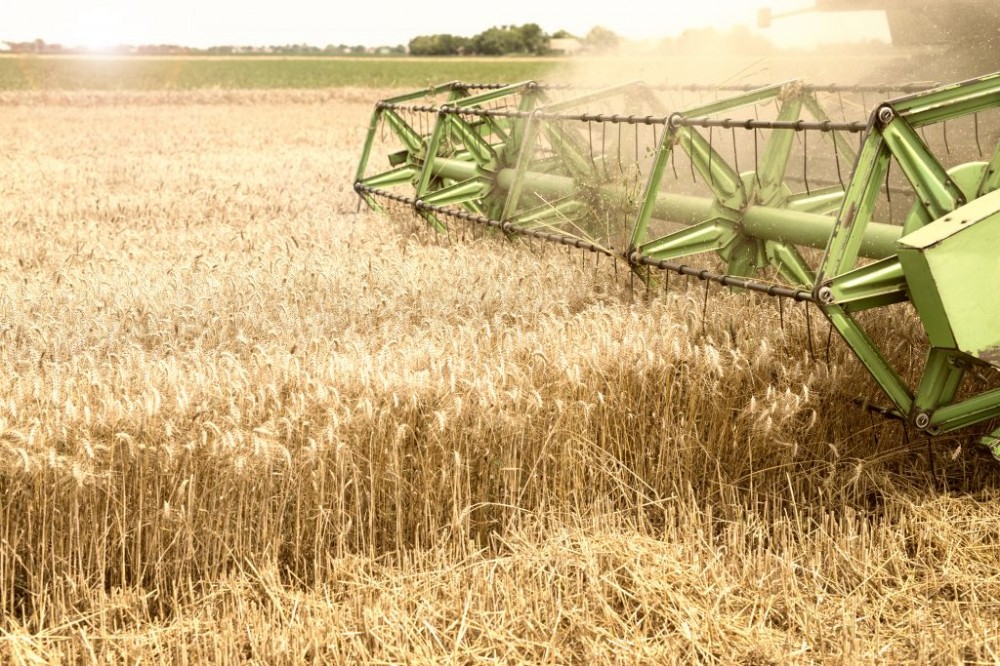Revolutionizing Crop Yields with Precision Biostimulants for a Sustainable Future
Increasing crop yields or maintaining them under adverse weather conditions are challenges facing farmers across the world. SugaROx is developing biostimulant formulations of plant-inspired molecules to target bottlenecks in crop production through a precision approach. The aim is to boost crop yields in a nature-friendly way, improving the efficiency and reducing the carbon footprint of food production.

Behind the novel active ingredients the company is developing lies more than two decades of scientific research into the way plants use and allocate carbon. Its targeted approach is fundamentally different to the majority of players in the biostimulant market, whose products are largely based on extracts from plants, algae or organic waste, explains the company’s Business Development Director, Bianca Forte.
“Traditional biostimulants have been around for many years and typically deliver yield gains of 2-5% for farmers. Because they contain mixes of ingredients, it’s very difficult for manufacturers to optimise their performance to deliver greater benefits.
“Our approach is the exact opposite. We’re developing active ingredients, modelled on nature, to make specific biochemical processes in plants more efficient. Across international field trials on wheat, the first active ingredient in our pipeline has shown potential to boost yields by up to 5-22% where crops are growing in good conditions and 4-14% when under drought stress,” she says.
SugaROx’s inaugural technology is based on 25-years of UK taxpayer-funded research into the role of a specific sugar called trehalose-6-phosphate, or T6P, which has been found to regulate carbon use and allocation in plants.
From lab to field
Bringing academic research into the marketplace isn’t always an easy journey.
The story behind the company’s first active ingredient began in 1999 when Dr Matthew Paul, a plant biologist at Rothamsted Research, secured a BBSRC grant to investigate the emerging function of the trehalose pathway in plants. His research opened the door to the possibility of increasing the yield of commercial crops without farmers having to use more fertiliser when his team discovered that T6P was indispensable for sugar use in model plants.
By 2005, the team had launched another BBSRC-funded project to investigate the mechanism behind the results. By 2009, they had established the mode of action of T6P, finding that it inhibits an enzyme called SnRK1 which regulates genes related to carbon use and regulates the plant equivalent of “blood sugar”.
In parallel to their fundamental research, the Rothamsted researchers secured a grant from BBSRC in 2006 to partner with organic chemists at the University of Oxford to investigate practical ways of using T6P to improve yields. Working with Professor Ben Davis, they designed a version of T6P that was more readily absorbable by plants, giving it the capability to boost intrinsic levels of the sugar inside plants cells, explains Bianca.
“The chemists synthesised T6P with an additional chemical ‘arm’ that facilitates uptake by plants. Once the modified sugar was found to work, a joint patent was filed to protect the researchers’ intellectual property. Today, the academic inventors have 17 patents granted around the world, including in the UK, and we at SugaROx have exclusive access to that portfolio.”
In 2014, Dr Cara Griffiths joined the science team on an innovation-focused project funded by BBSRC. The aim was to demonstrate the effects of the proprietary T6P on winter wheat and her research as part of a large team effort over a number of years with Matthew Paul and Ben Davis involving 11 authors was published in Nature in 2016 showing yield increases of up to 18% in glasshouse trials.
Although the technology showed huge potential, initial attempts to raise investment for a spin-out proved unsuccessful due to the lack of field trial data needed to show that the results obtained in a glasshouse would transfer to farmers’ fields. Most promising new technologies fail at field stage. Potential early-stage investors were also wary of the risks associated with the lack of regulatory frameworks, explains Bianca.
To address those concerns, more funding from BBSRC was obtained in 2018 to undertake a series of field trials. In parallel, Ben Davis, Matthew Paul and Cara Griffiths convinced of the potential impact of chemical T6P methods in crops combined with promising field trial data co-founded SugaROx. This coincided with a change in the EU regulatory framework which enabled Bianca and Dr Griffiths to get SugaROx off the ground as the first employees of the company, working under the mentorship of acting CEO Michael Peagram – a serial entrepreneur and seasoned investor.

Derisking a risky business
First steps for Cara and Bianca involved raising finance for the early stage agri-tech business and they successfully pitched to the SHAKE Climate Change panel, securing £140,000 investment in 2021 during the accelerator’s second funding round.
SHAKE is a consortium-based accelerator led by Rothamsted Research that brings together experts from the agricultural research institution and leading universities in the sector, Cranfield University, University College London and the University of Hertfordshire. The programme awards funding and mentorship to companies that provide climate positive solutions in agriculture and food production – a box that the SugaROx ticks in a number of ways.
“By boosting yields on the same land area, fewer emissions are produced per tonne of wheat, helping farmers meet the increase in food demand in a sustainable manner, says Bianca. “We estimate that if UK milling wheat growers achieve a 15% yield boost through using our T6P-based biostimulant, it would reduce the carbon footprint of a loaf of bread by 11%.”
This increase in agricultural land output has climate benefits as it allows for carbon to remain sequestered in non-cultivated areas. SugaROx has appointed ADAS, a UK agronomy group with leading experts on life cycle assessment in agriculture, to independently verify the carbon footprint reduction potential of their product for wheat and other major crops.
Bianca says the SHAKE accelerator program played a crucial role in the early days of SugaROx. Through SHAKE's training and mentoring, the company identified key risks in its business plan and drafted a strategy to raise funds in a phased manner to address them.
“With the initial investment obtained through SHAKE, we secured a Farming Innovation Pathway (FIP) grant from Defra and Innovate UK to assess the feasibility of our approach. We developed and tested prototype formulations, commissioned initial toxicology studies to draft a registration strategy, and streamlined the synthesis process for our T6P,” explains Bianca.
In 2022, after de-risking the company’s business plan, SugaROx was able to attract follow-on pre-seed funding of £150,000 from angel investors. And having that additional investment, allowed the company to attract a permanent CEO, Mark Robbins, who brought 35 years’ experience in chemical manufacturing to the boardroom and executive team.
“The SHAKE experience also gave us visibility and credibility with venture capital investors who later became critical for our continued growth,” she adds.
To date, two UK-based venture capital funds – Regenerate Ventures and UK Innovation & Science Seed Fund (UKI2S) – have joined SugaROx’s seed round, which is open for subscription until the end of the year.
Challenges for investors
To secure investment from the two funds, SugaROx was required to obtain a grant from Innovate UK’s Combined Investor Partnership Scheme (CIPS) to further de-risk the business plan, a common challenge for early-stage science-based agri-tech ventures, notes Bianca.
“Agricultural R&D requires many years of testing, and these long timelines don’t align well with typical investment horizons. There’s also high technical risk as developing novel crop inputs carries significant scientific and regulatory risks that are difficult for investors to assess.
“As we’re working in an emerging market, there are few comparable companies to benchmark against. The agritech investor community in the UK with an understanding of the biostimulants sector is also relatively small compared with other industries, which adds to the challenge.”
As well as high risk and long timelines, R&D also has high capital needs. “Commercialising agricultural innovations requires large sums to progress through development, trials, manufacturing scale-up and marketing. Even with proven science, getting farmers to adopt new products takes time and poses uncertainty for investors,” explains Bianca.
Despite all these challenges, it’s the lack of regulation for biostimulant products in some markets, including the UK, that is perhaps the most significant hurdle to investors, she identifies. “Without clear regulations, commercialisation pathways and returns are more difficult for investors to evaluate, and risks are higher.”
Regulatory frameworks
“With a precision agriculture product using a novel synthesised molecule, SugaROx needs to conduct extensive toxicology and field trials to prove safety and efficacy for registration” she says.
A regulatory framework that limits claims to proven efficacy is a prerequisite for SugaROx to launch into a market because it provides protection to farmers and to the company’s intellectual property, as well as assurance for investors, highlights Bianca.

The EU now has a regulatory framework for biostimulants in place and SugaROx is awaiting the outcome of a steering group appointed by Defra to consider whether the UK will follow suit.
“In 2020, the EU’s decision to bring regulation into this space marked a very clear signal to both corporates and investors that the biostimulant market has reached a certain level of maturity. Lack of regulation in markets doesn’t help a company like ours as there isn’t a level playing field. In the absence of regulations, it’s difficult to prevent other companies from falsely claiming to be using approaches similar to our patented technology, undermining our commercialisation efforts,” she says.
“Regulation establishes standards and requirements that raise the bar for all biostimulant products. This helps SugaROx demonstrate the value of its precision, science-backed approach to farmers and distributors.”
Supporting agri-tech innovation
The UK government recognised the importance of agri-tech innovation with the publication of its long-term agri-tech strategy, backed by significant funding that’s been put in place to support innovation in the sector. But is there more government could do to help translate science results into benefits for society and the economy at home and abroad?
SHAKE helped equip the startup team with business skills through mentoring, finding a strategy to make the business more attractive to investors in its critical early stages. Grants from the UK government were also key. “Every time we were able to bring in public funding, we were able to do work to further derisk the business making our proposition more attractive for private investors.”
Clear, science-based regulations for biostimulant products would reduce business risks and facilitate investment and it’s very much at the top of Bianca’s list of things that could be done to better support innovation in the UK. And it’s reducing risk that’s fundamental to the business’ success, she believes, so it would lead to further private investment into the sector.